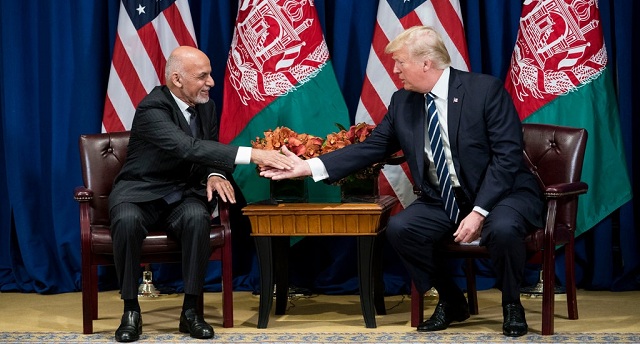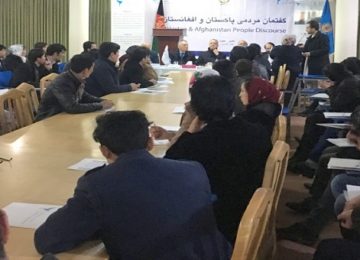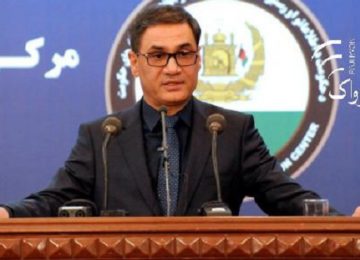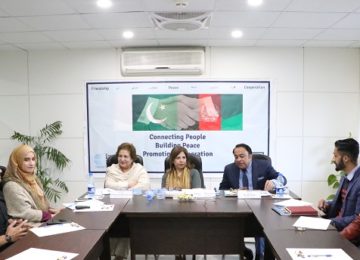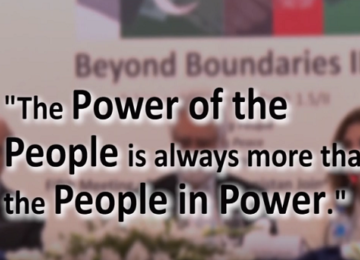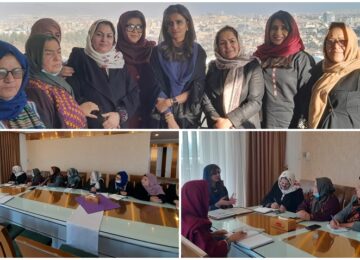November 12, 2019
By Lt. Gen. (R) Asif Yasin Malik
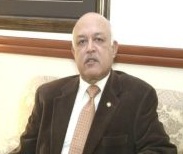
The global political environment today is very interesting in the sense that all the justice and all the law and world organizations are for the rich and the powerful. The rest of us are just supposed to support this system. Within that environment comes the concept of justice i.e., social justice and economic justice. Economic justice also means the sharing of global resources. Though, interestingly, nowadays resources of the poor countries are also being decided and exploited by the richer countries i.e., how to use and develop them. That is how geo-economics is evolving.
As far as Afghanistan in a conversation on regional connectivity is concerned, it has been historically a regional conduit – or a connectivity instrument – for all invading forces or competing players. They all came through the Afghan corridor from the Central Asian countries. Therefore, this is nothing new that we are witnessing i.e., an Afghanistan through a trade connectivity perspective. This area has been neglected for a long time during the Cold War, where Afghanistan was under the Russian influence, while Pakistan and Iran were under the Western influence. Therefore, it should have been started before but still it is never too late to start now. It is very important that we revive that connectivity role of Afghanistan, and we have a golden opportunity in the form of the vision of the Chinese – the BRI and CPEC, which is like a cake-on-the-plate sort of situation; very timely, as Afghanistan is transitioning in to peace and the concept of BRI and CPEC has started maturing. So the doors of opportunity are open for Afghanistan and beyond, which is lucky for the region.
Coming over to connectivity and the conduits today, the nature of the conduits has changed; this is not the Afghanistan of the 19th Century. This is not the India of the 19thCentury when there was neither Pakistan nor Iran and other countries of the region in the way they are today. Nor is there now the China of even the 20thCentury; this is the China of the 21stCentury. So this is a new China, a China which people have never seen. The Chinese were seen as drugged people, enjoying themselves on the streets and loosely walking and falling here and there. Today, China has become a force to reckon with. There is a prediction that by 2025, China will be the largest economy in the world. Now, if that be, we keep hearing that China has taken out 600 million people from poverty to better socio-economic conditions. So, if there is a new China here, and with that, the old concept of connectivity – as viewed by China in the past – has also changed from the Old Silk Road to BRI; this is the change that is emerging and it is a win-win opportunity for the countries of the region and beyond.
Again, this is an east-driven or Asia-driven concept and, as people are saying, the 21st Century will be the Century of the East, and the linchpin in the East against the Western concept of making India the pivot instead of China. China is the real pivot of the east, and considering India for this role is a blunder of the highest magnitude. A country which has not been able to provide basic living amenities to its populace; a large segment of Indian urban population grows up and dies on footpaths and streets but the country is falsely talked about as the economic bulwark of the region. It is, of course, a rising economy because of its size; if every Indian spends a dollar a day, it becomes 1.3 billion dollars a day, which is acceptable. But that should not be the driving factor for international relations. That is the new form of capitalist environment.
We should learn from the past and not be its prisoners. When one US soldier was killed, Trump cancelled peace dialogue, but two weeks earlier some 280 Afghans were killed when a bomb was dropped on a marriage party, nobody talked or cared about it. Unless the world stops thinking that we are the children of a lesser God, there will be no justice.
Afghanistan is being considered by the western countries as a chessboard, and as you said, sneaky Khalilzad is here. I would tend to slightly disagree with you. I think all the peace processes were mostly run behind closed doors, if one brings such processes in public domain, we won’t go anywhere. There are things which three or four parties in the dialogue don’t want to share in the public unless they sign on the dotted line. Therefore, we should allow some sneakiness to Mr. Khalilzad. Regarding his views about Pakistan’s perceptions in Afghanistan, I agree that the Afghan perception on Pakistan is very negative but then perceptions are not born; they are built as part of a very concerted and a very well-planned campaign. It may not be the Afghans who are creating these perceptions; there may be other friends and enemies of Pakistan and Afghanistan responsible for creating these perceptions. We must remember that not everyone cares about the Afghans and not everyone wants peace in Afghanistan. There are always some beneficiaries of a conflict and that is what gives birth to a global system wherein justice is only for the rich and the mighty.



